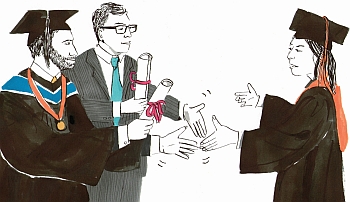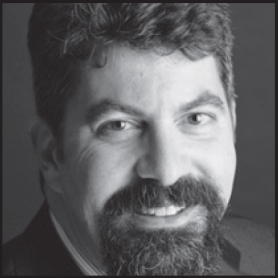So what is “experiential learning” anyway?
It’s rare that the legal academy, the profession and the regulators agree on anything, so it’s remarkable that all three are looking at doing something about how to train new lawyers. But while there might be consensus that new approaches are worth examining, there’s anything but common ground on what constitutes the best path to practice. And the ensuing power struggle is exposing some pretty big fault lines between the three solitudes once again.
Traditionally the equation was fairly simple: law schools did the “book learning” and the theory; law societies did some sort of skills training and basic examination to ensure competency; and firms and individual lawyers were responsible for the lion’s share of practical skills training prior to call. Standards at Canadian law schools were generally high, very few failed Bar admission exams, and articling students could be charged out (even at a discount) while engaging in what often constituted a year-long audition. Even in the dark days of the early 1990s recession, when hire-backs were perilously low, almost everyone got through the system and came out with the essential competencies.
Fast-forward a generation and the equation has changed, at least in some parts of Canada. The Law Society of Upper Canada declared a “crisis” in articling a while back when about 15 per cent of applicants couldn’t get articling spots. This was largely a result of Canadians going overseas to law school when they couldn’t get into Canadian ones, then wanting to come back to find articling positions and finding, to their chagrin, that law firms considered them damaged goods.
One proposal would see articling ditched entirely. At Lakehead University, they’ve now approved an “integrated practice curriculum” that will enable grads to practice right after law school. Other places like Calgary traditionally has a reputation for producing “practice-ready” lawyers. And there’s now an online Law Practice Program at Ryerson (English) and Ottawa (French) meant as an “innovative alternative to traditional articling” (read “for those who can’t get articles at a firm”). The LPP combines four-month placements with a “virtual firm” and simulations based on “real-world scenarios.” Both are supposed to ensure that applicants for admission to the Bar will have parallel knowledge, skills and experience to competently execute the tasks required of a newly admitted lawyer ready to be unleashed on an unsuspecting public.

Ironically, some American state Bars have headed the opposite direction, instituting “transition to practice” programs or structured mentorship in the first few years of practice. Such programs are designed to ensure that skills, ethics and professionalism are taught by seasoned practitioners.
So it’s curious that Canadians seem intent on driving skills training into the law schools instead. While there have always been clinics and other offerings that allow students to immerse themselves in applying what they’ve learned in theory, baseline competencies have largely been left to the firms and individual lawyers to teach.
For some, the pressure to vocationalize legal education can be felt more viscerally. I recall really negative reactions from the local Bar when one law school attempted to set up a “small business” clinic that would essentially be competing with them for scarce client work. More than a few Big Law folk, meanwhile, have told me that they’d prefer not to have to have students “unlearn” bad habits picked up in clinic or other simulated work that really doesn’t come anywhere close to developing the competencies and skills needed to succeed with sophisticated client work.
The right approach for elite law schools is to do what we do best: focus on the theory and on how to think, layer on international and intercultural competence, and leave the rest to the firms.
Paul Paton is the Wilbur Fee Bowker Professor and Dean of Law at the University of Alberta. He can be reached at [email protected].





